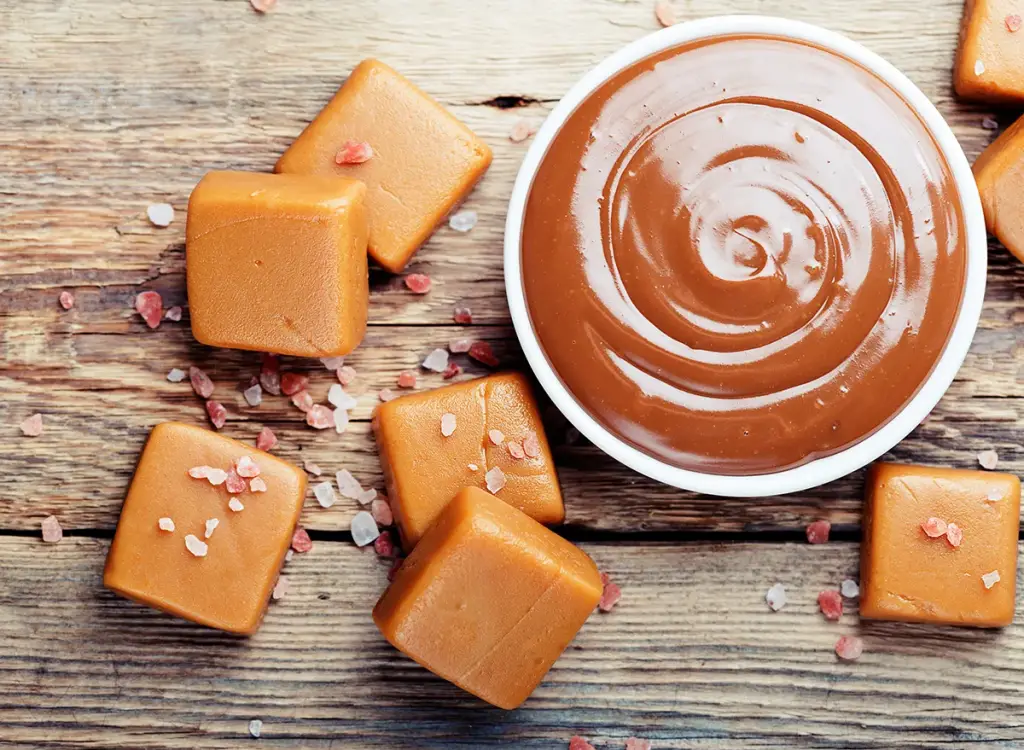
Caramel is not toxic to your cat. However, avoid it in the diet, especially in large quantities, since it has devastating effects on a cat’s health that you will regret. As much as it is okay to give your cat a treat, and at times to satisfy her curiosity with small amounts of caramel, large quantities daily are hazardous and will definitely harm your cat.
You love your cat dearly; in fact, you feel like it is a part of you and that it should have the finer things in life as appreciation and caramel seems tempting because you love caramel too. Giving your cat caramel may seem like a good idea but it is not. You may even console yourself that it is not toxic and therefore harmless but therein is the trap that will cause you endless agony in the long run. Sugar is a harmful meal for cats and other felines, even though cats generally appreciate flavors.
What is caramel, and why is it bad for your cat?
You may ask yourself, what is caramel made of? Well, here is the answer; caramel is simply sugar, salt, cream, butter, and water. The high sugar content of caramel combined with the dairy components is a sure trigger for digestive issues in cats and most household pets including dogs. Small doses are harmless, but then again, why should you give your pet a treat that lacks significant nutritional value in the ingredients, except water anyway? Caramel if regular and in large amounts in your beloved cat’s diet will lead to serious health complications and in extreme cases death. It is guaranteed to reduce the life expectancy of your feline friend so watch out.
What are the effects of consuming caramel on your cat?
Cats are naturally carnivores. Natural sugar is known to cause mild to severe health complications in carnivores if they consume it on a regular diet. Here are five of the effects of caramel on your cat that you need to know about:
Compromised oral health
The sugar in caramel will cause tooth decay in your cat as you keep treating her to a sugary diet. The damage is especially certain if you fail to brush the feline’s teeth after the sugary treats. The result will be weak teeth which will, in turn, affect feeding, and in extreme cases, lead to starvation and death due to the inability to chew food.
Triggers pancreatic complications
There are other recipes for caramel that contains enormous quantities of butter. The butter in the caramel will trigger pancreatitis in your cat if consumed regularly.
Indigestion and intestinal blockage
The sugary nature of caramel gives it a sticky characteristic. The stickiness is known to cause choking accidents and intestinal blockages. Cats are also not used to this kind of food, and as carnivores, it takes a heavy toll on their digestive system. The caramel may fail to be digested in the cat’s stomach and proceed to the intestines as it was causing a blockage that may require expensive emergency medical intervention to save the day.
Exposure to sugar diseases
There is no time that sugar will be good in the diet of your cat. Feeding your feline caramel increases the risk of obesity and diabetes. It is a ticking time bomb that is waiting to explode at any moment.
Poisoning
Because caramel is mainly made of sugar, artificial sweeteners like xylltol, which is a toxic substance, can be used to make the product. Xylltol is an extremely toxic chemical compound that your cat must never ingest in the name of a good treat.
How to limit or completely protect your cat from eating caramel
The table below summarizes the methods you can use to limit or completely protect your cat from eating caramel:
What to do |
How to do it |
Create a Cat-No-Go Zone |
|
Use smells and tastes as a deterrent |
|
Use the element of unpleasant surprise to discourage access |
|
Moderation |
|
Lock and key |
|
Conclusion
The short answer to your cat eating caramel is an emphatic no, and you have seen why. Caramel has no nutritional benefits to your cat, yet at the same time, it will adversely harm the feline. To be on the safe side, you must never willingly give your cat caramel if you truly value her and her well-being. Keep the caramel to yourself, and it will save your cat and you from unnecessary pain and avoidable agony.
FAQ
Is it okay if I feed my cat caramel popcorn?
No. Caramel popcorn is just as bad for your cat as any other caramel product even though it looks appealing and seems much healthier by look. To sum it up in six words; it is totally a bad idea.
How do I know that my cat’s intestines are affected by blockage?
If your cat’s intestines are blocked, you will see the following signs;
- Persistent acute bloating
- Inability to pass stool
- Vomiting;
- Lethargy


